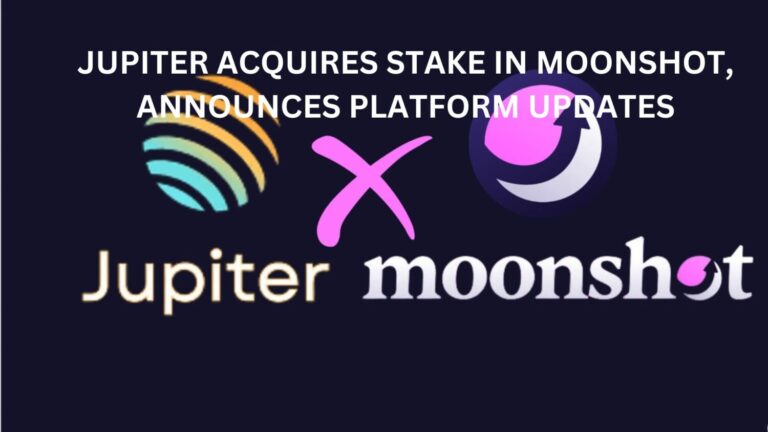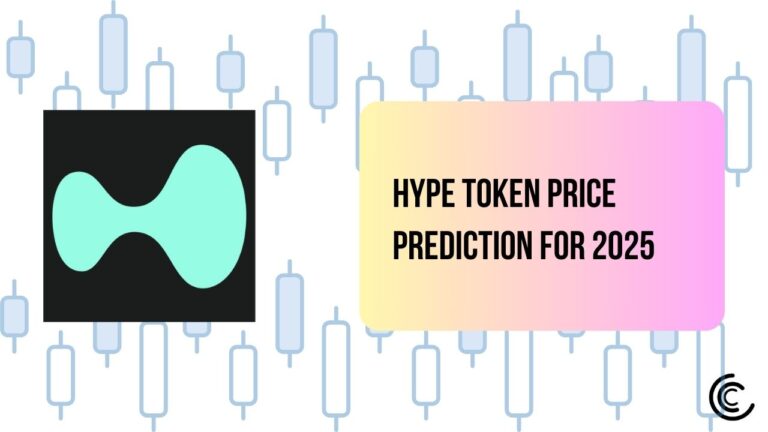Table of Contents
Bitcoin News: 9th November 2021
- Nigeria’s central bank reportedly freezes crypto traders’ accounts [LINK}
- Bitcoin retains $65K after Elon Musk sell-off sees BTC pass Tesla market cap[LINK}
- India to soften position on regulating cryptos by taking ‘middle path’[LINK}
- Brave Browser to Integrate Solana dApps [LINK}
- Bitcoin Touched $68,600 For its New ATH whereas Cardano Soars 12% [LINK}
- Solana Surpasses Tether by Market Value, Enters Fourth Place with $75 Billion [LINK}
- Litecoin hits 6-month high as LTC price soars 20% in 24 hours [LINK}
- Retail-focused Singaporean CBDC to hedge against privately issued stablecoins [LINK}
Nigeria’s central bank reportedly freezes crypto traders’ accounts
The CBN barred banks from servicing crypto exchanges in the country in February, citing worries about volatility, money laundering, and terrorism financing.
According to reports, the Central Bank of Nigeria has instructed all commercial banks in the country to freeze the accounts of at least two people involved in cryptocurrency trading.
According to reports, the action is part of a bigger effort by banking regulators to cancel accounts of Nigerian people or businesses “transacting in or operating cryptocurrency exchanges” through local banks. The CBN barred banks from servicing crypto exchanges in the country in February, citing worries about volatility, money laundering, and terrorism financing. Governor of the Central Bank of Nigeria, Godwin Emefiel, later claimed that the majority of crypto transactions through commercial banks in the country were “illegitimate,” meaning they were used to fund illegal activities.
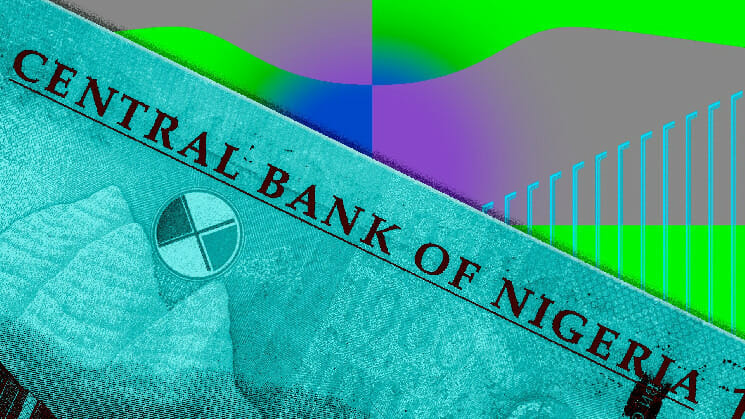
In addition, receiving authorisation from the Nigerian Federal High Court in October, the CBN is preparing to launch the country’s central bank digital currency, the eNaira. The eNaira is being touted as a faster, cheaper, and more secure way to conduct financial transactions, although it is expected to coexist with Nigeria’s fiat currency.
Bitcoin retains $65K after Elon Musk sell-off sees BTC pass Tesla market cap
Bitcoin (BTC) was trading around $65,000 on Nov. 8, with huge gains seemingly unaffected by Tesla’s (TSLA) stock falling 5% at the Wall Street open.
BTC/USD was down roughly $900 at $65,500, according to data from Cointelegraph Markets Pro and TradingView, after touching highs of $66,433 on Bitstamp.
The revelation that Tesla CEO Elon Musk will sell 10% of his Tesla interests — worth roughly $23 billion — just because Twitter followers voted for him to do so dampened the company’s overnight triumph.
Apart from the fact that it was nine months ago today that Tesla purchased $1.5 billion in Bitcoin for its balance sheet, Musk’s move had an unanticipated consequence: Bitcoin overtook Tesla in terms of market capitalization.

In the meantime, Michael Saylor, CEO of MicroStrategy, commented to Musk’s plan by saying, “If the goal is diversification, an alternate option to consider is converting the TSLA balance sheet to a Bitcoin Standard and purchasing $25 billion in BTC.”
“In a tax-efficient approach, that would provide diversification, inflation protection, and more upside for all investors.
Musk hasn’t said what he’ll do with the proceeds of the stock sale, which he claims will be his only taxable event because he doesn’t get paid by Tesla.
The cryptocurrency market cap is emulating Ethereum’s all-time highs.
In the meantime, fresh all-time highs for Ether (ETH) dominated major altcoins, while other tokens experienced little movement on a daily basis.
But people from various platforms still believe that “The true acceleration of this cycle has yet to arrive.”
India to soften position on regulating cryptos by taking ‘middle path’
India is apparently leaning towards a neutral posture on bitcoin regulation, despite the fact that cryptocurrency adoption shows no signs of slowing. This is intriguing, especially considering there have been reports that a cryptocurrency bill may be tabled in the Indian parliament’s winter session. Recent reports, however, imply that its earlier hardline stance may be softening.
Because the crypto-industry has already carved out a sizable market share worth billions of dollars in the country, imposing a blanket ban would be damaging to a large number of investors. A legal tender status, on the other hand, is exceedingly unlikely to be granted.
According to a government source published by the Economic Times, a “balanced” approach would be required. According to the source,
“A midway road that addresses all stakeholders’ interests is more likely.”

While officials have been debating various regulatory issues, an upcoming presentation is scheduled to finalise the taxation of capital gains acquired through crypto-trading, according to the source. The bill is expected to be sent to Cabinet after that.
The Indian government’s stance on cryptocurrency has shifted several times. Back in 2019, a government panel proposed an outright ban on cryptocurrency trading, along with penalties and jail time, while earlier this year, the Finance Minister assured citizens that they will “examine how this technology might allow fintech to maximise the potential that it has.”
While this may be attributable in part to high levels of adoption and investment, India’s changing crypto picture may also be related to the advent of large companies.
With major international investments from the likes of Coinbase and a16z, two of India’s top crypto-exchanges, Coin DCX and CoinSwitch Kuber, have achieved unicorn status. Furthermore, India’s own protocol, Polygon, has a market capitalization of over $12 billion dollars.
Brave Browser to Integrate Solana dApps
The Solana blockchain will be supported by default in Brave. Solana has teamed with Brave, a prominent privacy-focused browser, to provide support for its decentralised applications (dApps). The Brave team revealed the connection at the Breakpoint conference in Lisbon on Monday, allowing Solana dApps to operate natively within the browser
Until far, Brave’s browser-based cryptocurrency wallets and DEX aggregators have only supported Ethereum and Binance Smart Chain (BSC). Solana will now be added to the supported networks as part of the team’s multi-chain approach.

Solana, a high-performance blockchain, has exploded in popularity in the previous year, establishing itself as a serious competitor in the Layer 1 race. Eich told Crypto Briefing that “Brave is adding support for Solana account creation, key management, transaction creation and signing, as well as compatibility for Solana’s JSON RPC APIs.”
The default support for Solana, according to Eich, will assist enable quick and economical access to the decentralised web, paving the path for “the next billion crypto users.” Within the first part of 2022, the integration with Solana will be finished.
The crypto community loves Brave Browser because it is a privacy-focused alternative to Google Chrome. For viewing anonymous adverts, the browser also compensates users with Basic Attention Token (BAT). By allowing advertisers to purchase ad space, the BAT token supports Brave’s advertising ecosystem.
The new agreement gives Brave’s 42 million monthly active users and 1.3 million verified creators access to the Solana blockchain. In exchange, Solana will deploy Themis, a privacy-by-design ad system, across its network. Themis is a significant step forward in the BAT 2.0 plan.
Meanwhile, the Solana (SOL) token just overtook Cardano and stablecoin provider Tether as the fourth-largest cryptocurrency by market capitalization.
Bitcoin Touched $68,600 For its New ATH: Cardano Soars 12%
Bitcoin broke its own all-time high of $67,000 in less than three weeks and set a new one of approximately $69,000. Ethereum followed suit and set a new high, while Cardano, with a 12 percent increase, has benefited the most from the larger-cap alts.
The leading cryptocurrency was struggling around $60,000 just three days ago, and the community wondered if it would be able to stay above that level for long
Three days in the market, though, can bring a lot of change. Rather than falling below $60,000, bitcoin went on the offensive and began rapidly increasing in value

BTC soared by thousands of dollars yesterday, reaching $66,000, as previously reported. It was just $67,000 away from setting a new record. It ultimately did so after some time below that mark, charting a new high of $68,600. (on Bitstamp).
In the last 24 hours, the second-largest cryptocurrency also set a new high. ETH had slipped below $4,500 a few days ago, but the bulls came in and drove it higher. Ethereum reached $4,860 on the most recent surge up, becoming the new all-time high.
Binance Coin, Solana, Ripple, and Polkadot are all up a little today. Shiba Inu and Terra have added about 4% to the value of the house. With a 12 percent increase to approximately $2.3, Cardano has risen the highest among the top ten coins.
Solana Surpasses Tether by Market Value, Enters Fourth Place with $75 Billion
According to CoinGecko, the “Ethereum killer” Solana has surpassed Tether as the largest stablecoin provider in terms of market valuation, with $75 billion compared to $73.8 billion for Tether.
Solana is currently ranked fourth in terms of market capitalization at the time of publication. BNB, its nearest competitor, is currently in third place, with a market capitalization of $109 billion. The most recent surge, which began in early November, has gained the majority of its capitalization.
Tether has yet to restart the “printer,” implying that Solana still has time to acquire traction and establish a slight advantage. The market cap of Tether increases by an average of $1 billion with each new token issuance.
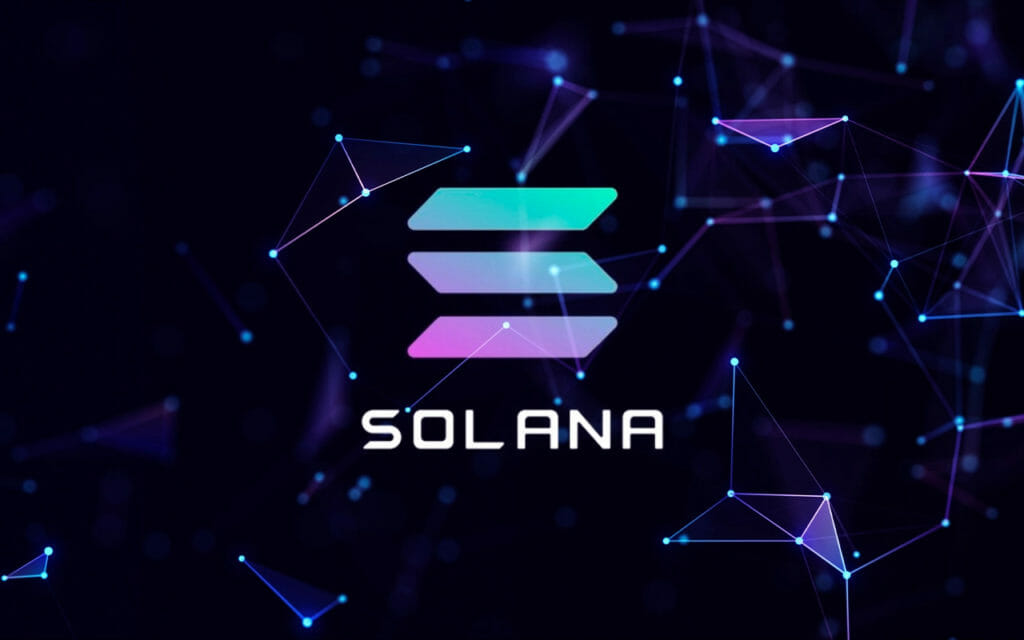
The prior rise of the NFT industry and decentralised applications has contributed to Solana’s rising market value. The Solana network is the second-largest network for NFT art, with a total market capitalization of about $1 billion.In addition to NFT, the decentralised financial industry provides Solana with an additional $15 billion in valuation, bringing the project’s overall capitalization to nearly 20%.
The project has been branded a “Ethereum killer,” or a replacement for the Ethereum network’s astronomical fees. Solana delivers a substantially larger network bandwidth (65,000 transactions per second) to the table, in addition to relatively low fees.
The present network holds 2,486 transactions per second, according to the Solana block explorer, which is less than the 10% load mentioned on Solana’s own website. The Solana network had previously been offline for more than 24 hours due to a high transaction volume, raising worries in the community regarding the network’s claimed ability to handle a large number of transactions at once.
Litecoin hits 6-month high as LTC price soars 20% in 24 hours
On Nov. 9, Litecoin (LTC) saw daily gains of about 20%, the biggest values for LTC/USD since May 2021, as part of a broader cryptocurrency market surge fueled by inflation fears, according to analysts.
In just three days, the 14th-largest digital asset increased by a little more than 25%, bringing its price to about $250 on Coinbase. Meanwhile, the entire value of cryptocurrencies has surpassed $3 trillion for the first time.
According to data from Cointelegraph Markets Pro, Litecoin’s ongoing price gain was inspired by similar upside moves across the major digital asset brass.
For example, Bitcoin (BTC), the world’s most valuable cryptocurrency by market capitalization, surged to a new all-time high above $68,500 on Tuesday. Ether (ETH) also reached a new high of $4,840.
Only a handful top alternative cryptocurrencies (altcoins), such as Litecoin, performed better against Bitcoin in the last 24 hours. According to Messari data, the heavily traded LTC/BTC instrument increased by over 14%, indicating a shift in money from Bitcoin to Litecoin markets.
Based on a typical bullish reversal pattern known as a falling wedge, the technical prognosis for the pair projected more gains ahead.
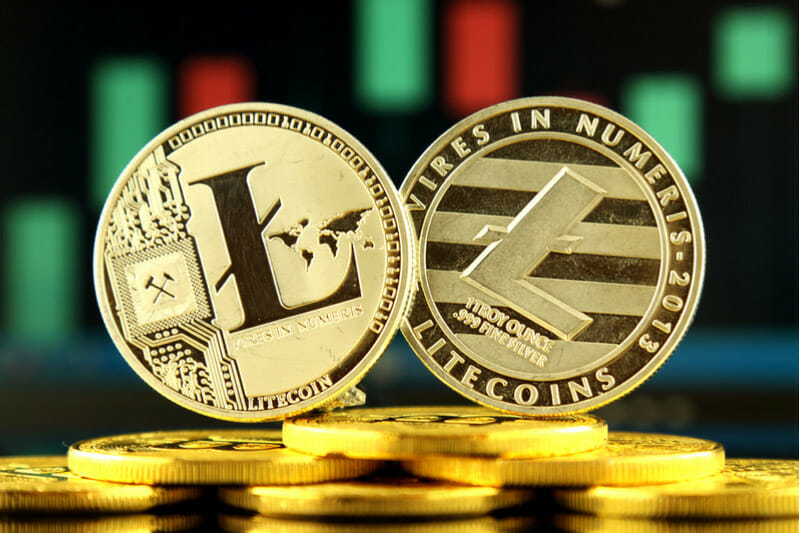
After bottoming out near $103 on July 20, the price of Litecoin has risen by more than 150 percent in terms of US dollars. However, the big upside advance of the “silver to Bitcoin’s gold” cryptocurrency has sparked a bearish reversal view, signalling that its ascent is ready for a break.
The rising wedge pattern is the polar opposite of the falling wedge pattern. It starts out wide at the bottom but gradually narrows as the price climbs. When the price breaks below the lower trendline and subsequently targets levels with a length equal to the wedge’s height, this is considered a bearish confirmation.
The wedge goal could move between $117 and $21 depending on where Litecoin starts its negative breakout.
A decisive break above $250, on the other hand, might invalidate the rising wedge pattern, putting LTC on track to reach $300 as its next price target.
Retail-focused Singaporean CBDC to hedge against privately issued stablecoins
Under the Project Orchid programme, Singapore’s central bank, the Monetary Authority of Singapore (MAS), has increased its efforts to explore and develop a central bank digital currency (CBDC) for retail usage
Singapore’s retail CBDC will be developed in collaboration with private firms, according to MAS managing director Ravi Menon, and will “be the digital equivalent of today’s notes and coins.”
Menon, who spoke at the Singapore FinTech Festival, emphasised the importance of retail CBDCs in facilitating faster and more secure online transactions as well as creating a more inclusive payment ecosystem.
In Singapore’s payments ecosystem, he also feels that establishing an in-house retail CBDC can lessen the inherent investment risks when dealing with privately produced stablecoins or overseas CBDCs:
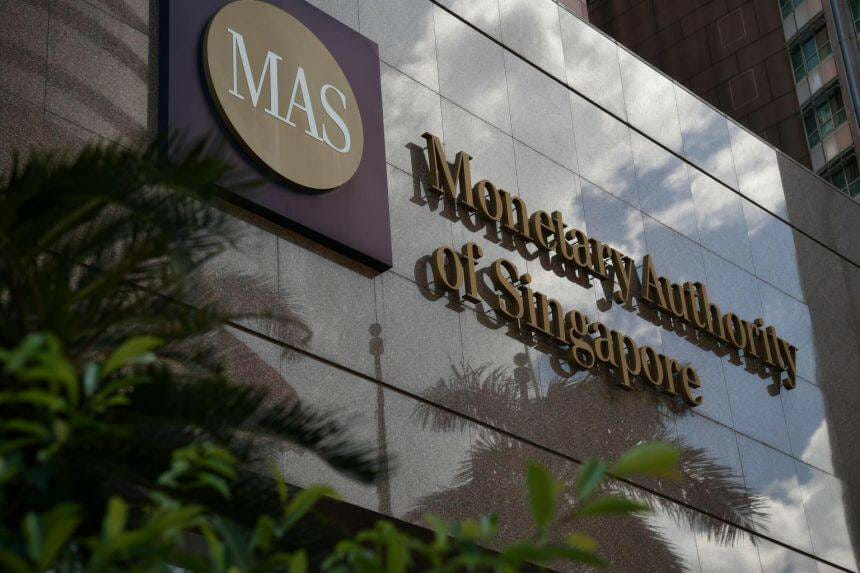
“A MAS-issued digital Singapore dollar that is compatible with the needs of a digitalized economy could help to alleviate this risk.” However, obtaining a retail CBDC is not a simple decision.”
Menon cautioned that if people held a majority of their assets in the form of digital Singapore dollars, central banks would be unable to issue sufficient loans:
“However, by constructing the retail CBDC with logical controls, such as stock and flow limitations on the amount of digital Singapore dollars that anyone is authorised to place with MAS, we can likely handle these concerns.”
MAS previously experimented with wholesale CBDCs under the Project Ubin moniker, with the goal of identifying various cross-border payment use cases. Partior, a blockchain-based interbank clearing and settlement network jointly built by DBS Bank, JP Morgan, and Temasek, was launched as part of the effort.
Singapore, according to Menon, will make regulatory sandboxes based on current frameworks easier to set up for market testing low-risk activities in a controlled setting.
Read Yesterday’s news here.

